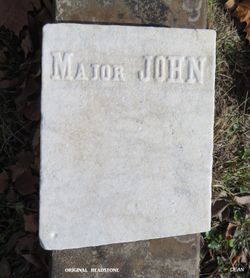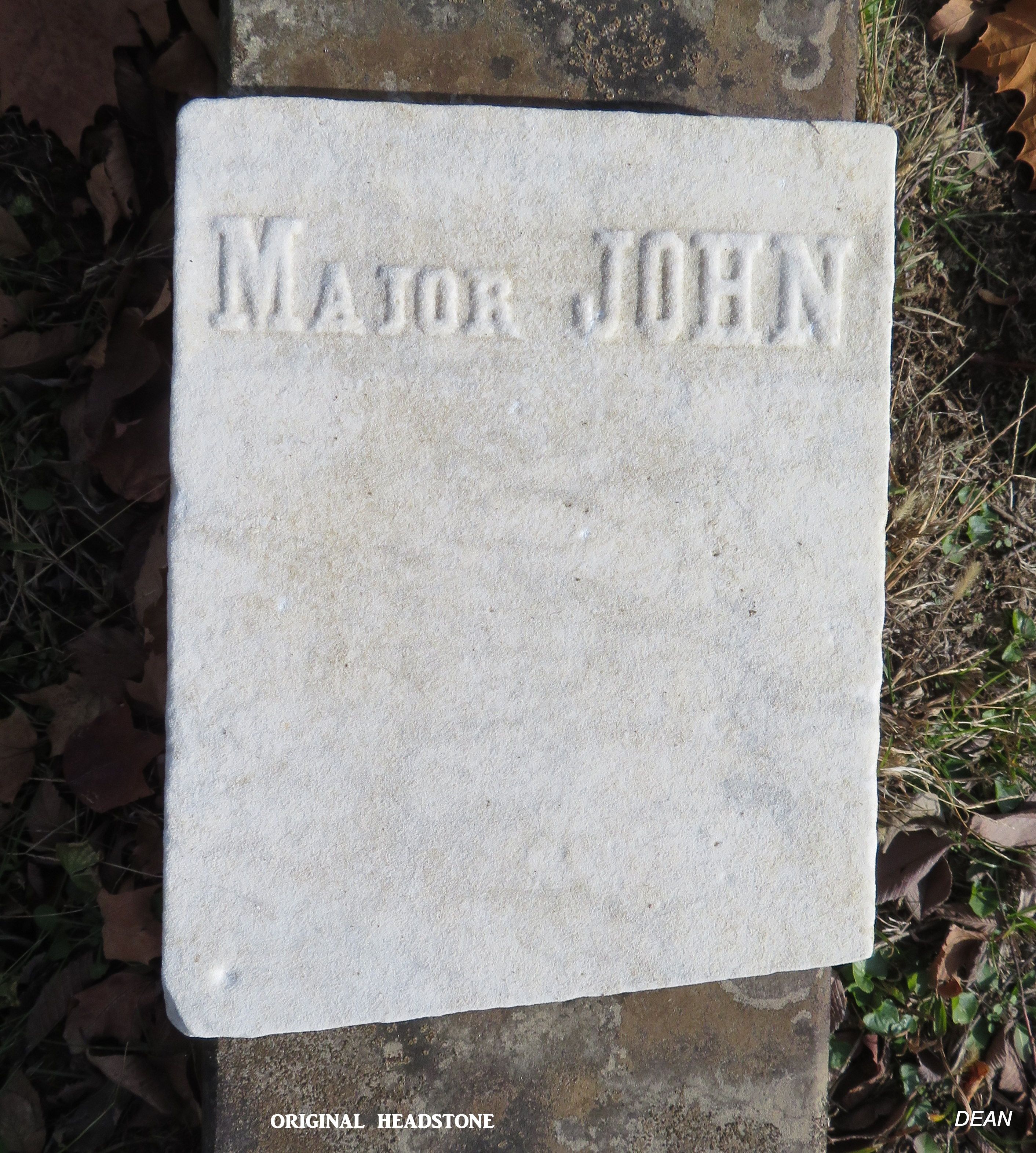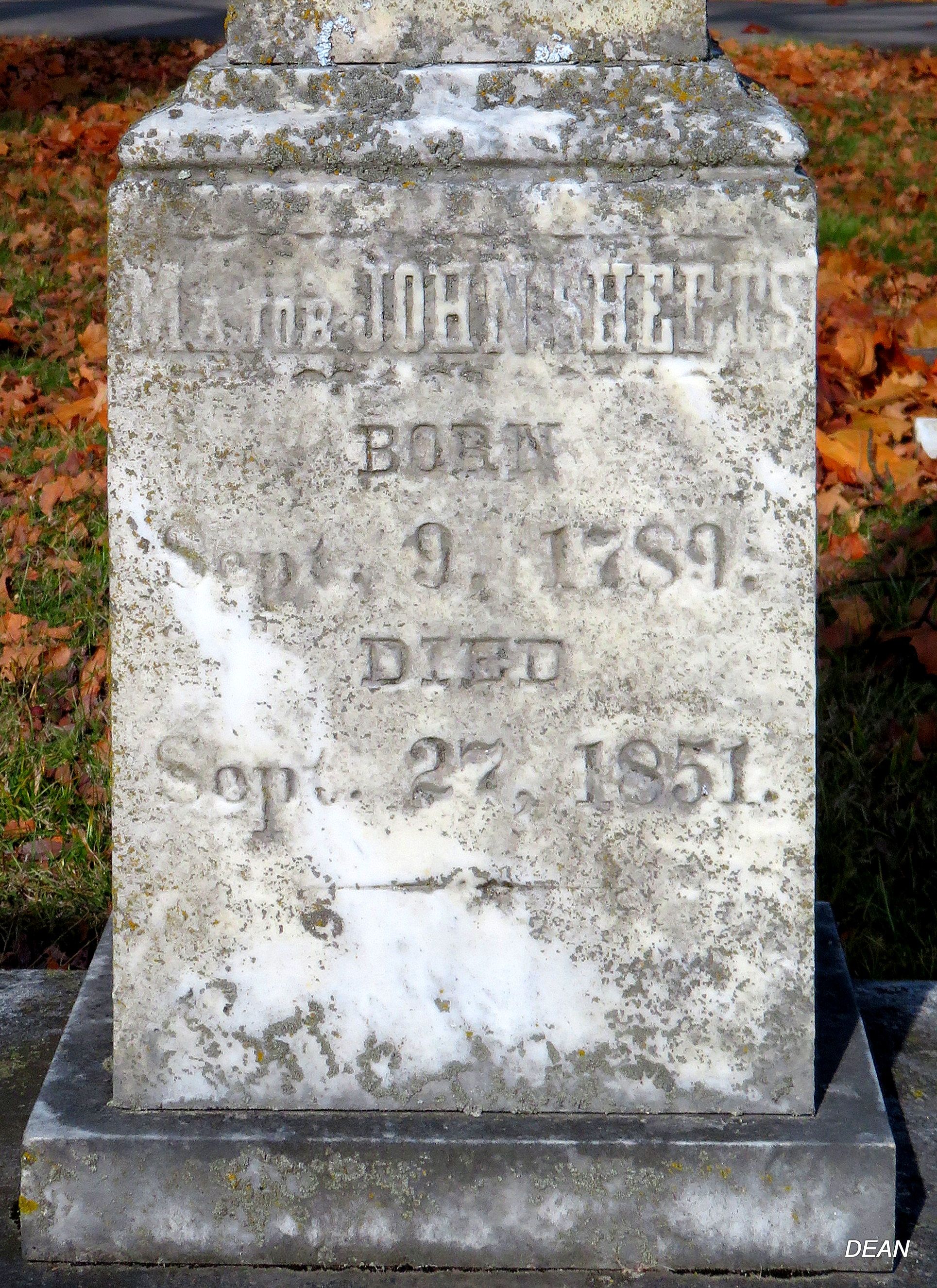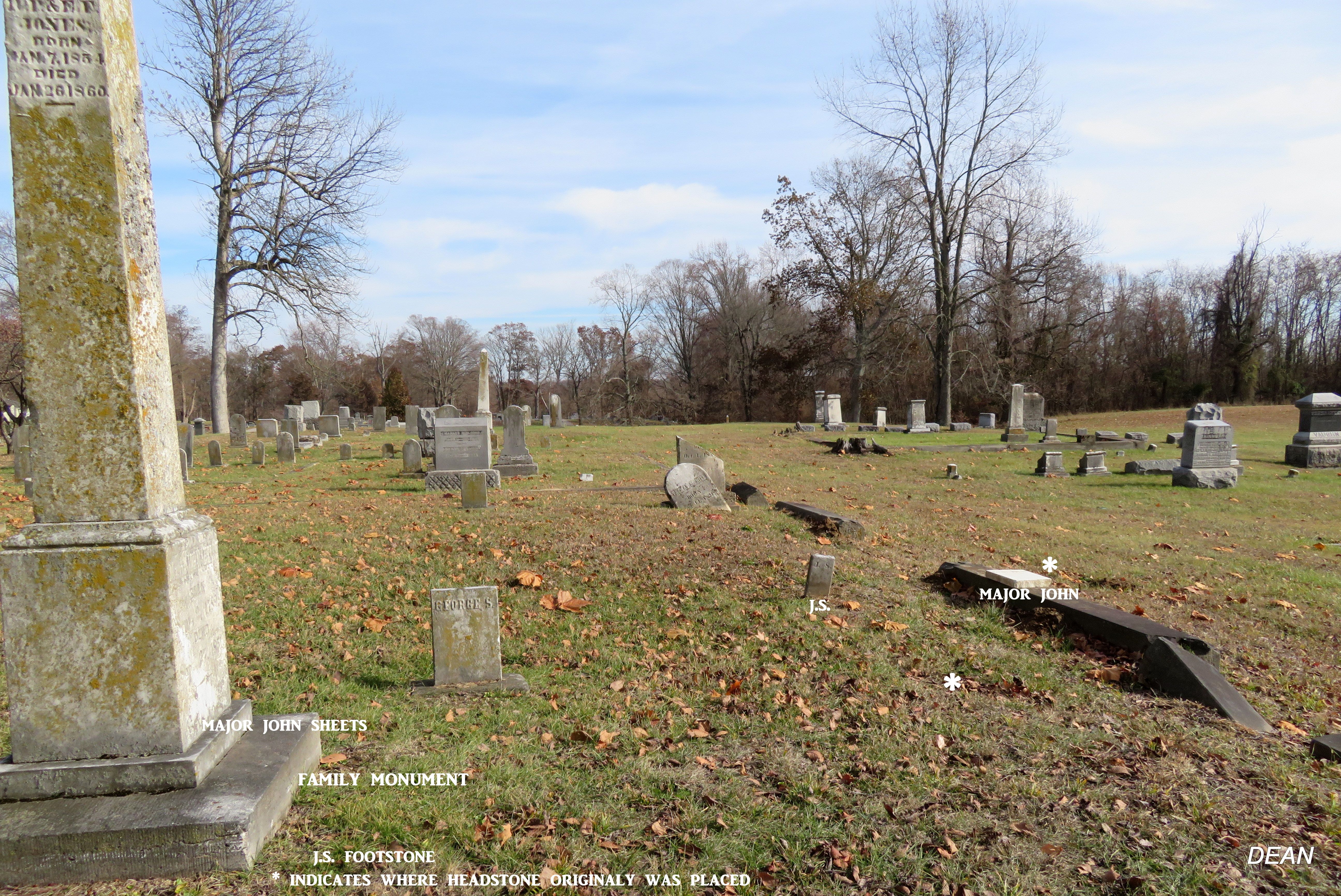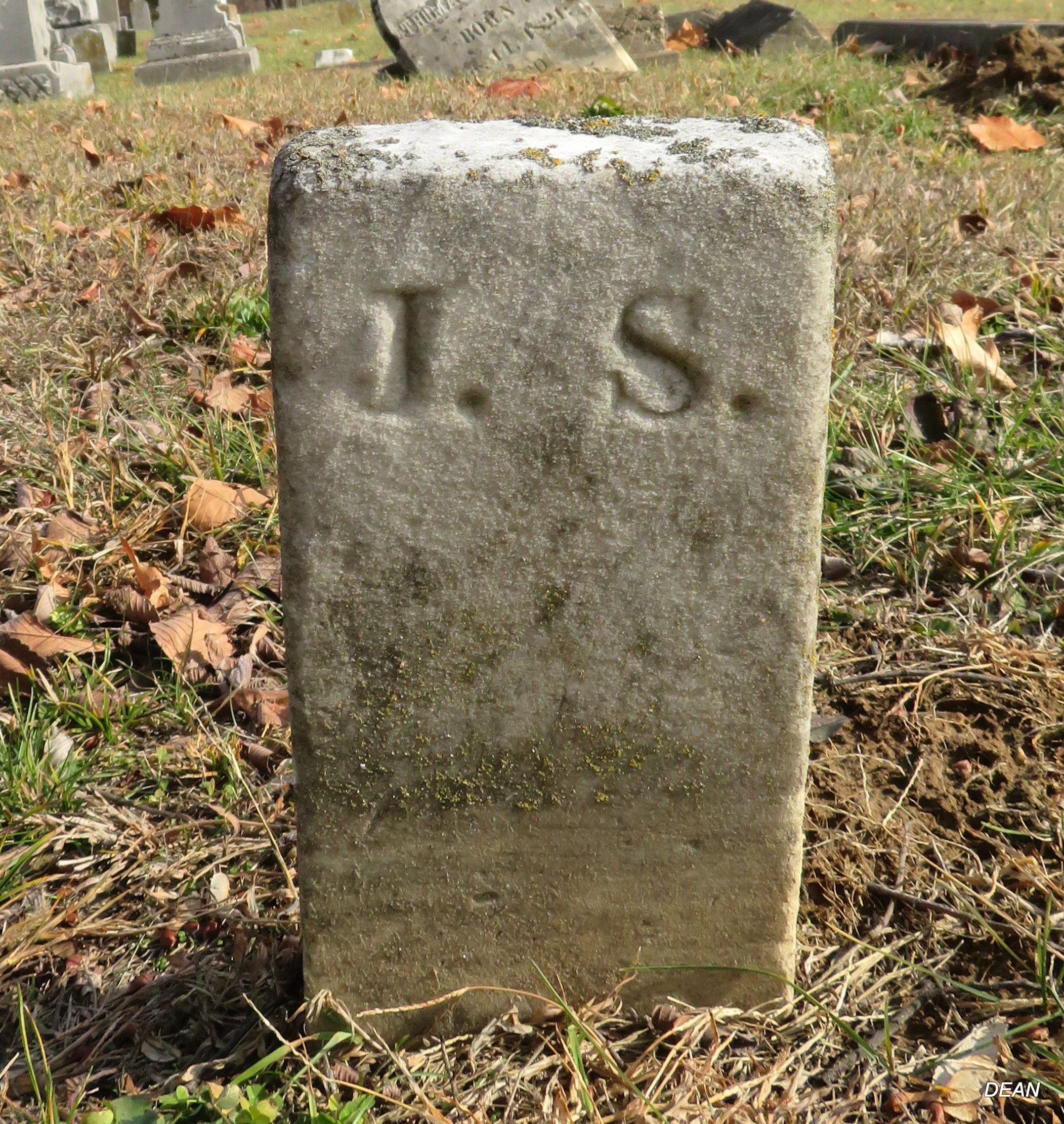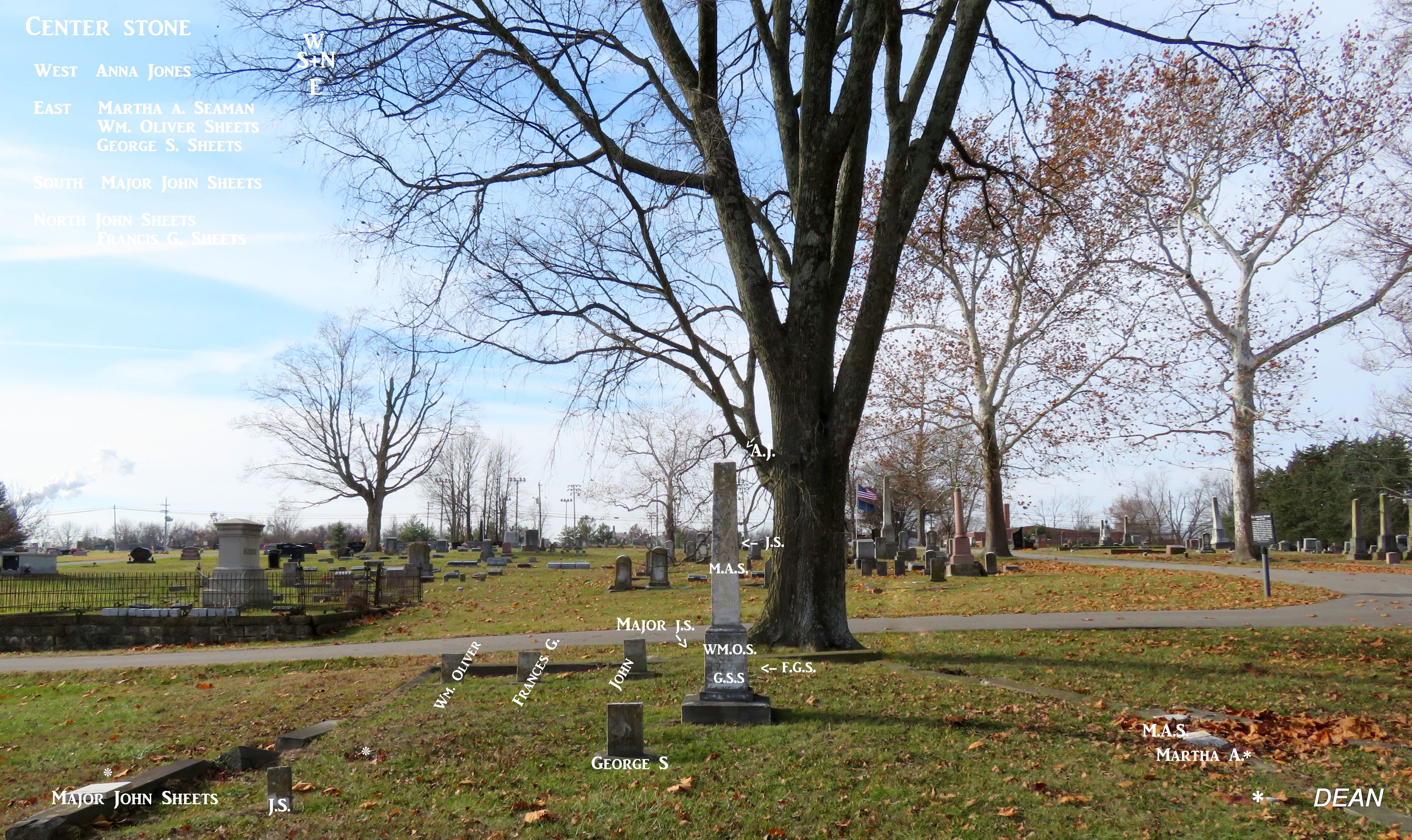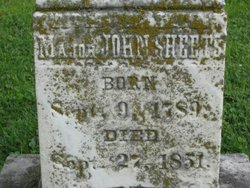According to several newspaper articles John was a trustee of the Jefferson County Seminary Society, along with James F.D. Lanier, John Paul and others. His early business ventures included a real estate partnership with Lanier. In 1820 John unsuccessfully ran for State Representative to represent Jefferson, Jennings, Ripley, and Scott Counties. From 1821 1823 John served as the 4th Grand Master of Free Masons in Indiana. Free Masonry records indicate that John must have been involved in the Masons prior to his arrival in Indiana.
On Sep 2, 1823, John was attacked on Main St with a club wielded by Andrew White. A later investigation conducted by the Masons indicated John may have made comments about the virtue of White's wife. John stabbed White twice with a "Spanish dirk" killing him. The court found that White, the larger of the two men, had threatened John previously. John was initially found guilty of man- slaughter by a jury, fined one dollar and one year at hard labor. However, on the jury's recommendation, the judge determined the case to be "excusable homicide" and acquitted him.
In 1828 John was reported to have the first cast iron cook stove, with seven plates, in Madison. He entered into business partnership with Benjamin W. Grover, a reported relative. Marriage records were located for Benjamin and a Laetitia D. Sheets in 1834. Benjamin died "a Colonel of Missouri soldiers" in St. Louis in 1861. His obituary states he had previously been wounded at Lexington, and states that his wife was John's daughter. It also states that Benjamin, along with Gov Hendricks, had laid out the lower portion of the town of Madison.
Both John and his son Francis G. (George?), along with the Dufours', are credited in the history of Vevay as planning the additions to that town in Perret Dufour's book on early Swiss Settlements. By 1840, John and Benjamin's businesses began failing. On Nov 15, 1841 the house on 2nd St was sold at a Sheriff's sale, and purchased by William Lawson. The home was later acquired by Robert P. Jones, John's son-in-law by marriage to daughter Elizabeth on Oct 18, 1844. By 1850 he had evidently recovered from his losses, as the Census valued his estate at $35,000.
Major John Sheets reportedly saved a negro by the name of Griff Booth from a mob (per Madison Courier news article as recanted by A. J. Grayson). Grayson also recants that Major John Sheets threatened to kill the leader of the mob if they did not desist, and the fact he had previously killed a man (Andrew White) was instrumental in the mob's decision to release Griff Booth. John was certainly not without his legal difficulties throughout his life. John was involved in five cases heard by the Indiana Supreme Court, two of which involved William Hendricks. John Sheets died at age 62 on Sep 19, 1851 and is buried in Lot 26, Fairmount Cemetery, Madison.
According to several newspaper articles John was a trustee of the Jefferson County Seminary Society, along with James F.D. Lanier, John Paul and others. His early business ventures included a real estate partnership with Lanier. In 1820 John unsuccessfully ran for State Representative to represent Jefferson, Jennings, Ripley, and Scott Counties. From 1821 1823 John served as the 4th Grand Master of Free Masons in Indiana. Free Masonry records indicate that John must have been involved in the Masons prior to his arrival in Indiana.
On Sep 2, 1823, John was attacked on Main St with a club wielded by Andrew White. A later investigation conducted by the Masons indicated John may have made comments about the virtue of White's wife. John stabbed White twice with a "Spanish dirk" killing him. The court found that White, the larger of the two men, had threatened John previously. John was initially found guilty of man- slaughter by a jury, fined one dollar and one year at hard labor. However, on the jury's recommendation, the judge determined the case to be "excusable homicide" and acquitted him.
In 1828 John was reported to have the first cast iron cook stove, with seven plates, in Madison. He entered into business partnership with Benjamin W. Grover, a reported relative. Marriage records were located for Benjamin and a Laetitia D. Sheets in 1834. Benjamin died "a Colonel of Missouri soldiers" in St. Louis in 1861. His obituary states he had previously been wounded at Lexington, and states that his wife was John's daughter. It also states that Benjamin, along with Gov Hendricks, had laid out the lower portion of the town of Madison.
Both John and his son Francis G. (George?), along with the Dufours', are credited in the history of Vevay as planning the additions to that town in Perret Dufour's book on early Swiss Settlements. By 1840, John and Benjamin's businesses began failing. On Nov 15, 1841 the house on 2nd St was sold at a Sheriff's sale, and purchased by William Lawson. The home was later acquired by Robert P. Jones, John's son-in-law by marriage to daughter Elizabeth on Oct 18, 1844. By 1850 he had evidently recovered from his losses, as the Census valued his estate at $35,000.
Major John Sheets reportedly saved a negro by the name of Griff Booth from a mob (per Madison Courier news article as recanted by A. J. Grayson). Grayson also recants that Major John Sheets threatened to kill the leader of the mob if they did not desist, and the fact he had previously killed a man (Andrew White) was instrumental in the mob's decision to release Griff Booth. John was certainly not without his legal difficulties throughout his life. John was involved in five cases heard by the Indiana Supreme Court, two of which involved William Hendricks. John Sheets died at age 62 on Sep 19, 1851 and is buried in Lot 26, Fairmount Cemetery, Madison.
Family Members
Advertisement
Records on Ancestry
Sponsored by Ancestry
Advertisement
